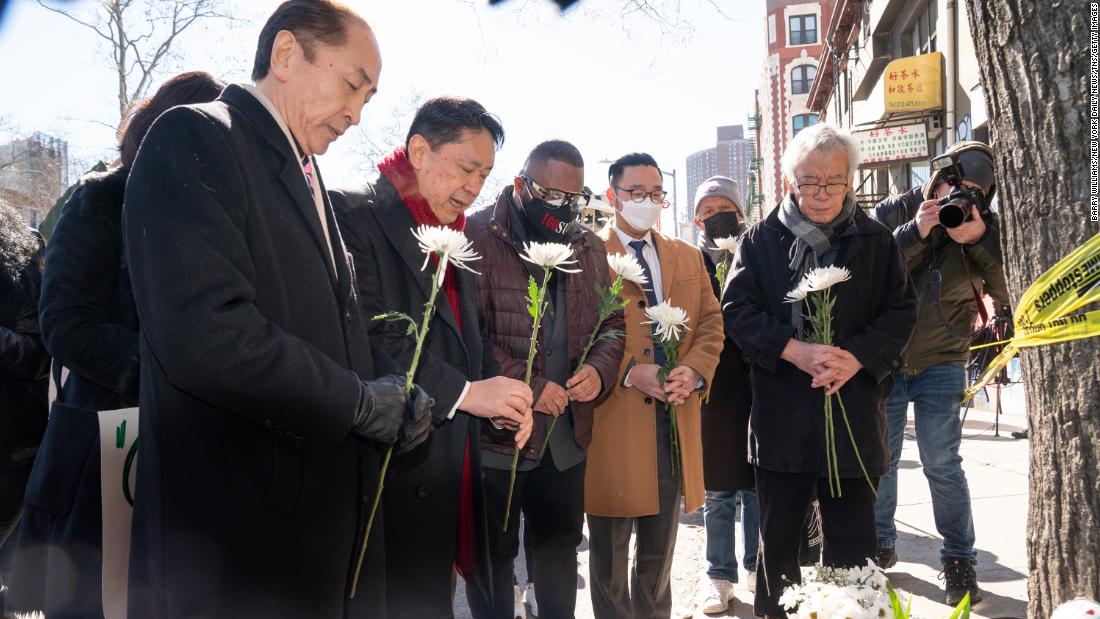
Hong Kong (CNN) — Cannon Yu lives in Shantou, Guangdong province.
In the past, her sales job at a packaged-foods company took her to business conferences all over the world. But she hasn’t left China since early 2020 and is taking her sales calls online instead of in person in Thailand, Germany, Morocco and elsewhere.
While those policies keep Chinese people in, they also keep most foreigners out, making it less likely for people like Yu to interact with people from other countries.
And although China still hasn’t announced a plan for removing quarantine and other roadblocks for international travel, Yu can’t wait to get back on the road and travel again.
There’s one exception, though — she has major reservations about visiting the United States.
How the East looks at the West
Scott Moskowitz, geopolitical risk analyst for APAC at the decision intelligence company Morning Consult, says that state-controlled media in China has played up examples of anti-Asian violence in the US in order to make its citizens less interested in going there.
It’s “a strategically curated ecosystem that over-reports and sensationalizes negative foreign news compared to the tight controls on coverage of challenging or disturbing domestic instance,” he says.
And Yu’s beliefs bear that out.
“They look at people discriminately (there),” she says. “Not only for Chinese, but for Black people. It’s very difficult to get fair treatment for all people in the United States.”
She adds that she has spoken to friends who have visited the US, claiming that they were detained and searched by customs agents before being allowed to leave the airport.
According to Morning Consult’s data, 22% of mainland Chinese respondents are “not interested at all” in visiting the US, with an additional 23% saying they are “not that interested.”
Of the survey respondents, 57% say that violent crime is a primary reason they don’t want to go to the US, while 52% cite terrorism, 36% say petty crime and 44% say they are concerned about anti-China bias by locals.
Instead, some Chinese travelers are now looking elsewhere, with destinations in Europe clearly preferred over the US, according to the survey.
The rise of violence
Meng, who is of Taiwanese descent, represents parts of Queens, the diverse New York City borough that is home to many Asian Americans.
These incidents — which range from street harassment to physical violence — get significant coverage outside of the US, including in China.
Current geopolitical tensions aren’t helping. Moskowitz says that the perception that the US is China’s biggest rival has only heightened attention to stories of anti-Asian discrimination or violence in the country, even though similar incidents also take place elsewhere.
“This differential is especially exaggerated in terms of (Chinese state media) reporting on the US as compared to Europe and other places. Some of this is strategic and intentional, curated in order to diminish the appeal and soft power of the country China sees as its great rival, both politically and ideologically,” he tells CNN Travel.
“There are strong perceptions in China that there is a lot of global bias against their country,” Moskowitz adds. “Personal and national identity are very strongly tied in China so there may be concerns that more macro and political grievances and resentments (both real and perceived) with a country will be turned back towards the individual when traveling abroad.”
How to change perceptions
Although changing the way Chinese travelers see the US won’t happen overnight, it’s not impossible.
“The results of this survey specifically suggest that travel companies and destinations should double down on safety-related messaging in marketing campaigns targeting Chinese consumers,” says Lindsey Roeschke, travel and hospitality analyst at Morning Consult, who co-authored the survey with Moskowitz.
She adds: “Travel brands should provide pre-departure information on safety tools and tips. Those who want to take additional action may consider providing access to safety-oriented tour guides or a designated personal safety representative during travelers’ stays.”
Some countries have given specific warnings to their citizens about US travel, specifically as it relates to gun violence.
As for Cannon Yu, she’s still eager to travel anywhere outside of China once it becomes less difficult.
Despite everything, she is still curious about the US and hopes to eventually see it for herself.
In particular, there’s one place on her bucket list — Las Vegas. “I want to gamble,” she says. And then, after a pause, she continues: “I want to make friends.”
Top image: Asian American community leaders place flowers on a memorial for murder victim Christina Yuna Lee after an anti-Asian hate rally in New York City. Photo by Barry Williams/New York Daily News/Tribune News Service via Getty Images.
#Black
Published on The Perfect Enemy at https://bit.ly/3RrQ9AT.
Comments
Post a Comment
Comments are moderated.